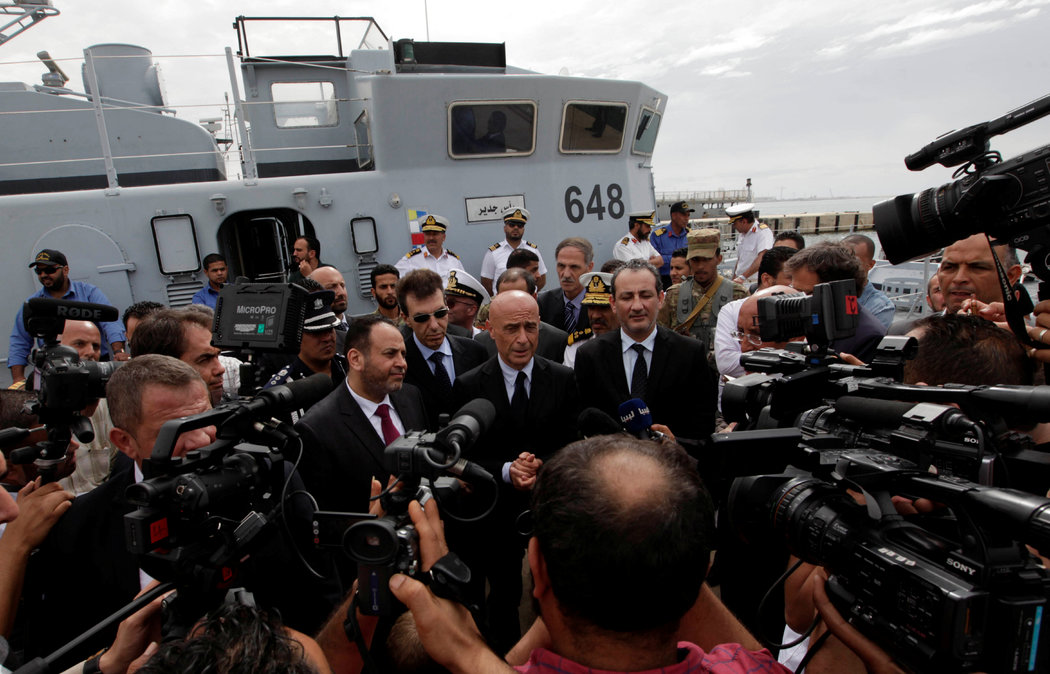EU externalisation and orchestration in the Central Mediterranean and Libya

Since 2016, the EU and coastal Member States—in particular Italy and Malta—have implemented a joint strategy aimed at stemming migration in the central Mediterranean. This has included, among other mechanisms, the criminalisation of search and rescue NGOs and the progressive substitution of EU and Member States’ rescue assets with those not equipped to perform rescue activities, e.g., aerial assets. The responsibility to perform search and rescue—‘weaponised’ as a form of border control—has thus been outsourced to the so-called Libyan Coast Guard, whose establishment and operation is enabled by the EU’s material, technical, and political support. In parallel, private actors, including merchant vessels, have also been increasingly called upon to perform interceptions—claimed as search and rescue operations—and ordered to perform illegal returns to Libya.
While the ‘externalisation’ of border control has become progressively distanced since the decision in Hirsi Jamaa and Ors v Italy, the EU and Italy continue to have a decisive role in the creation and maintenance of the b/ordering regime in the central Mediterranean. SS and Ors v Italy and SDG v Italy challenge the anachronistic and structurally narrow constructions of jurisdiction under international and European human rights laws through the conceptualisation of alternative forms of jurisdiction—namely ‘functional jurisdiction’ and ‘impact jurisdiction’.
cASES
-
S.D.G. v Italy: Privatised ‘pushbacks’ and human rights abuses
Filed in December 2019 with the UN Human Rights Committee, SDG v Italy challenges so-called ‘privatised pushbacks’—in which states engage commercial ships to return intercepted migrants to unsafe locations in disregard of various legal obligations, including human rights law.
-
S.S. and Ors v Italy: Extraterritorial policies of ‘contactless control’
Filed in May 2018 with the European Court of Human Rights on behalf of 17 survivors of a 130-person shipwreck off of Libya, the case asserts Italy’s “contactless control” and “functional jurisdiction” over Libyan actors implementing the EU and its Member States’ refoulement and containment regime in the central Mediterranean.
UPDATES
-
Collective statement and call against the building of Italian migrant detention centers in Albania
On 6 November 2023, the Italian and the Albanian governments signed a deal on the construction of detention centres in Albania, to be used to arbitrarily detain people rescued or intercepted at sea by Italian state ships. Against the normalisation of externalisation, de:border signed a statement co-authored by collectives from Greece, Italy, Albania and Kosovo.
